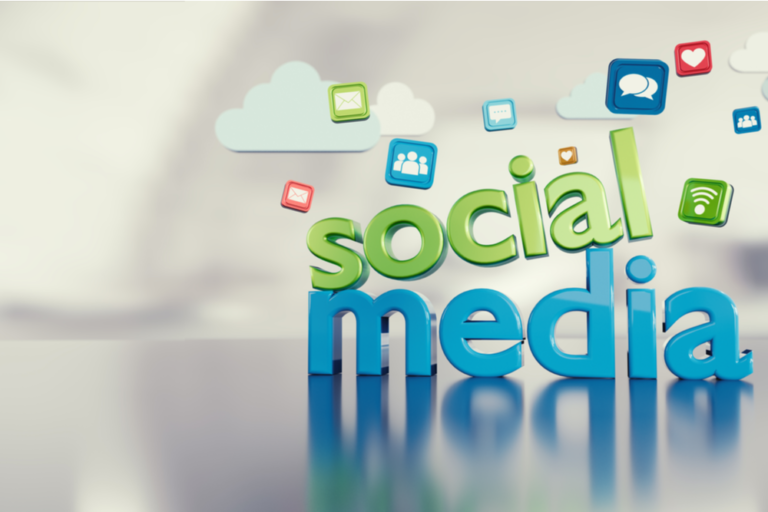
The last decade has witnessed an enormous growth in the popularity of social media. Where some networks merely had a couple million users at the turn of 2010, these numbers are now in the billions. Indeed, Facebook estimates to have at least 2.45 billion users as of 2019. That’s more than a third of the world’s population. However, with this popularity comes a growing list of challenges and problems. At the end of the day every social media giant is a company with its own interests, agendas and most importantly of all; operates with the intention of making a profit despite being free to the average user. With this in mind, is social media to the overall benefit or detriment of our society?
Is There Any Such Thing As Privacy Online?
Social media sites are all free to use yet how do they make money? Most of us casually scroll past the user license agreement whenever we create our profile but it contains some interesting clauses. In most cases, whenever you use a social media website’s platform or app you give them permission to save, collate and have ownership of whatever data you submit. Additionally, they’re given permission to access your device’s activity as well. Ever found it a bit suspicious or even unsettling that right after you check out something nice on a website or take a picture at a nice location you suddenly see advertisements popping up on your social media for that item or venues in that location? Put simply, it’s not a coincidence. Indeed, when testifying before the US Congress earlier this year, Mark Zuckerberg, founder of Facebook, went into extreme detail explaining just how his company makes its fortune through mind-boggling levels of data analysis and advertising according to Business Insider.

Basically, you’re the product. The real concern comes from the fact that these companies are, at the end of the day, private, agenda-driven entities. How safe is our data? Can we fully verify what they do with it? What happens if this is compromised? In hindsight, these websites are only projected to grow as they become the primary forum for online engagement in an increasingly interlinked, digitized world. How we grapple with inadvertently turning our personal life into a product is entirely up to us.
Deciphering Fact From Fiction
Fake news, fake news! This slogan has caught on in recent years. First brought into mainstream use during the hotly contested 2016 US elections, it quickly caught on around the world. In the years that followed and the various politically divisive investigations surrounding the result, social media platforms came under fire for the role they may or may not have played. On the one hand, the concept of free speech should be applied flatly, allow for any view to be propagated on a platform be it tangibly backed up or not. Open discussion on all things should be encouraged. On the other, critics have argued that these platforms became hives for misinformation, polarization and extremism. However, in many cases, those uttering such criticisms were themselves polarized and believed their ‘side’ was getting the short straw.

We see this as both Left and Right-wing gurus in the US and Europe accuse social media platforms of allowing too much of a bias against those holding their views. With this much pressure and potential financial losses, tech companies upped the ante and introduced both personal and AI moderated systems. In some cases, outright purges occurred of anything that could be seen as ‘offensive’ wherein even educational content or serious, scientific discussion may be shot down due to it containing violence, nudity or topics deemed ‘unfriendly’ for mass consumption. Interestingly enough, this has only made things even more divisive and extreme. Pew Research studies found that most of the US public believes that social media sites censor political views they agree with Republicans slightly more likely to argue this.
In other cases, those such as Twitter founder Jack Dorsey have come out as avowed leftists leading to his platform as being seen as well as described by other media outlets as being left-leaning. A piece from Guardian UK earlier this year highlighted that, for niche business endeavours that may find more popularity among those with left-leaning views, Twitter is the ideal place for marketing and promotion. Consequently, the greater use of AI moderation has led to cases where trivial content is blocked in error or scenarios where multiple individuals posting the exact same thing will receive entirely different punishments or none at all. Put bluntly, no matter whose bias truly is more accepted, the increasingly polarized nature of Western politics has made social media into a proverbial hell-scape for civil and evidence-backed discussion leading to an almost anarchic battlefield of intertwined fact, fiction and agendas.
Political Agendas And Radical Soapboxes
Indeed, many regional political campaigns have taken to social media, with armies of loyalists and thousands in USD spent on online advertising. These intense viral electoral campaigns are both rudimentary and extremely venomous. No one is safe. Can social media operators moderate this content to ensure toxicity is minimized? Will they considering the greater potential for profit from relentless, scandalized campaigns? Such an environment is the perfect breeding ground for misinformation, radicalism and setting the foundation for political violence. In fact, even outside the realm of politics, the anonymity and ‘hands-off’, indirect approach yet popular nature of social media has granted many the confidence to smear, slander and defame others. Thankfully, in this respect, courts and laws are evolving globally to tackle such things.

A Silver Lining Behind Dark Clouds
It comes as no surprise that tech giants have been called into US Senate hearings multiple times this year alone. The most recent in Mid-November saw disturbing revelations including questions about censorship and erasure of certain hashtags or political leanings as well as software used to basically create a profile of a user, what social media accounts they log into across various devices and their activity on said devices. In essence, every facet of your personal life may be neatly collated and stored. Consequently, CEO’s were quizzed on what accountability, if any, exists with respect to how employees can access and view this including personal messages with the answers being vague or sometimes non-existent.
Yet, despite all these downsides, social media is most aptly described as a double-edged sword. For businesses both on and offline, creators, whistleblowers and many other endeavours, it’s been nothing but a blessing. Having looked at the more sinister aspects of social media’s growing monopoly on our lives, in our next part we’ll take a while to look at the plethora of positives behind this technology as well.